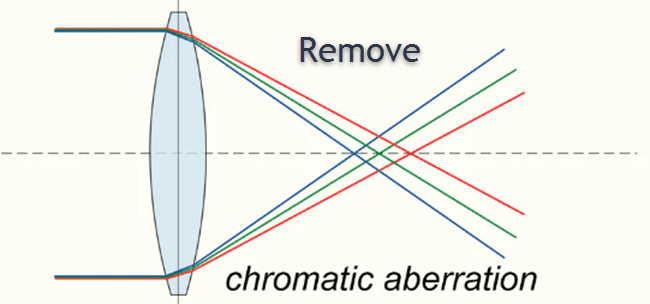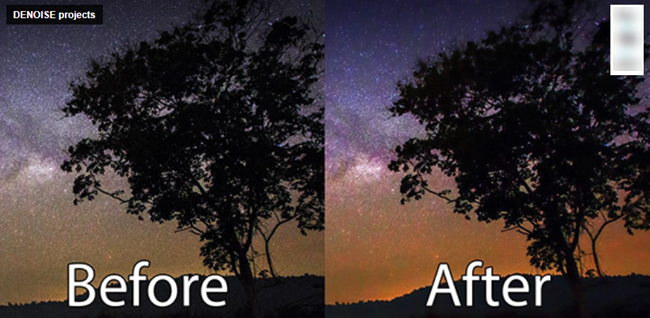
You might have wondered how a professional photographer delivers awesome quality photographs time and over again.
However, you may wonder why you often fail to churn out great pictures each time even though you have the latest single-lens reflex digital camera and use the best flashlight along with a bounce adapter with accessories like lenses (macro, zoom, telephoto, wide-angle), filters, and studio umbrellas.
Be prepared for a surprise when you visit the home of a photographer friend and find him seated beside his computer, retouching photographs he had taken the previous day.
You might not believe that most professionals have full knowledge of lighting and photo shooting angles, but most of them are rarely able to click stunning photographs at first instance.

They use special software to edit digital photographs to remove unnecessary backgrounds as well as make color corrections with the help of color, hue, and saturation controls available in those programs.
Once done, they save the RAW images in .jpeg format and send them to a processing studio to print the digital photographs on high-quality glossy or matte paper.
You too can achieve the same quality photographs as those shot by professionals with the help of two of the leading photo editing programs, Luminar Neo and Aurora (Aurora is now the new ‘HDR Merge').
Quickly Navigate to:
Is Luminar Neo Better than HDR Merge?
Go through this Luminar versus HDR Merge comparison to find out which is best and if Luminar is better than HDR Merge or vice versa. We shall be reviewing both of them separately, and then highlighting the differences between the two so that you can decide which one best suits your requirements. By the way, Skylum produces both of these programs.
With a purchase or subscription to Luminar Neo, you can also have HDR Merge included, depending on the plan you choose. Or you may decide to purchase each separately.
What is the Difference Between Luminar Neo and HDR Merge?
The major difference between these two offerings from Skylum is that HDR Merge is exceptional when merging multiple images and is designed for more enhanced details and toning whereas Luminar Neo allows for starting editing and enhancements with single exposures and more stylistic editing. Both programs can be combined.
If you have bracketed photos to merge, HDR Merge will be useful for merging them. There is a plan in Luminar Neo that includes HDR Merge unlike the previous versions, like the Luminar AI when compared to Luminar Neo.
Luminar Neo
Luminar Neo, being marketed as an alternative to Adobe's offering has caused a stir in the market. Thanks to the Adobe Lr-esque catalog of this program along with its powerful editing tools. It has been able to convert thousands of users of Adobe Lr to this more affordable program.
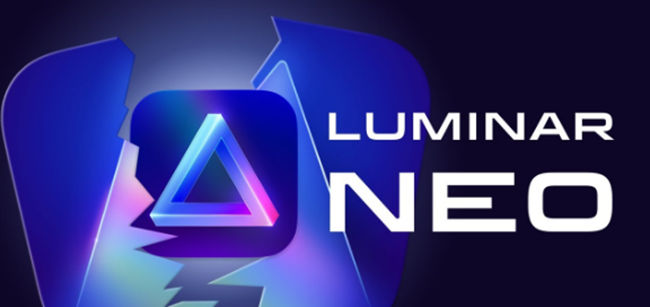
Unlike Adobe's subscriptions, Luminar Neo can be purchased one-time, and be yours forever. This itself is a game-changer.
In this review, we shall check what the software is capable of and whether it can live up to its expectations. This is the latest version of the program. The vendor offers updates to those who already own previous Luminar versions.
Fast Processing Speed
The developers have burned the midnight oil to make this version a league ahead of its predecessor. Forget the slow editing speed of the previous version, as this version almost instantaneously applies changes to the photograph made by the slider. This is what we were looking for.
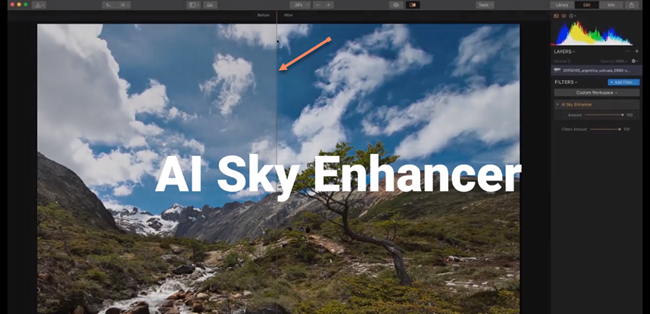
This software is a hybrid between Photoshop and Adobe Lr and permits you to apply layers to the photographs when you are editing them.
One important point: Make it a habit to switch layers before changing the workspace or you will lose the edits. The ideal method is to set up the workspace for a single layer and make the requisite edits, after which you can create a new layer.
Workspace Galore
The software offers you the choice to choose from many pre-determined workspaces. As different filters are used to make each workspace, you can easily do everything you desire and much more.
We loved this feature because it allowed us to design our personal workspaces as well as get rid of filters we would never need.
We were also able to create a methodical process by creating workspaces for individual stages of our photo-editing workflow. In fact, we created workspaces that permitted us to make our primary color changes and RAW adjustments, before creating new layers and switching over to de-noising workspaces. We could then shift to different layers and workspaces, dedicated to sharpening our files.
Easily Recover Edits
The “undo” feature of this software is a blessing in disguise as it allowed us to undo any changes we made, which also includes workspace switches. This implies that you can recover your edits if you swap over and lose them.
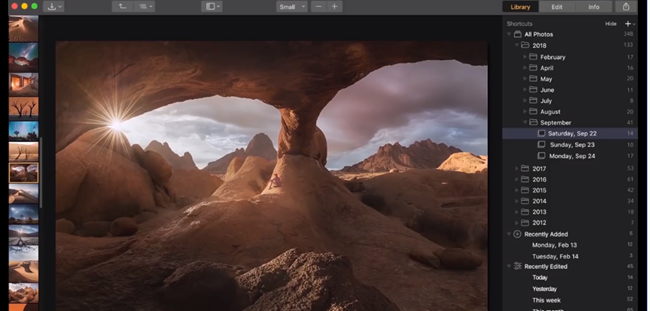
Flexible and Adjustable
The structure of Luminar Neo allows you to customize the program according to your personal preferences and for a smooth editing process. You can also configure the software to ensure that it fits into your workflow, and eliminate anything unnecessary that gets in the way.
The fact that this program permits you to work in layers is beneficial as well. Unlike Adobe Lr which allows you to apply masks and a limited number of alterations to areas selected within the mask, Luminar Neo allows you to apply a mask to any layer or filter. This implies that you can make numerous adjustments to just a single area of the image.
One in All
Unlike other programs, Luminar Neo consists of an entire editing bundle and allows you to do everything you require from within the program itself.
After you have completed the editing task, you have the choice of leaving the edits within the library or exporting them as a file for use with any other program. We were slightly disappointed with the size of the export window, but we are not complaining as we know this software only has the absolute necessities.
Good Price for Great Value
Do not crib as this program offers standalone software at a pocket-friendly price. The latest version of the software also includes a digital asset manager, in the form of an image gallery, which allows users to organize photos in a better way than Adobe Lr.
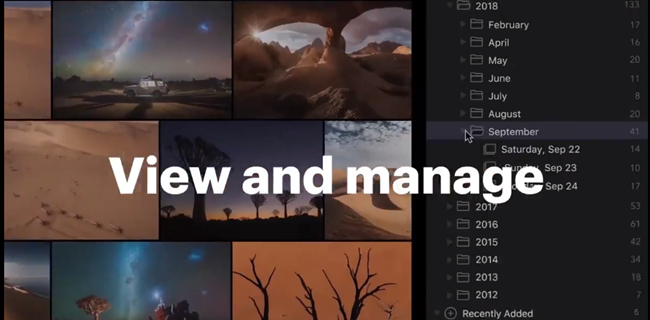
Much More
The slider feature of Luminar Neo allows you to move a single slider to make slight changes to the picture or add multiple layers and masks, as well as experiment with third-party plugins.
Unique Filters
There are some filters that are unique to Luminar such as top and bottom lighting, super contrast, structure, skin, sunrays, and AI sky enhancer. All of them combined allow for endless opportunities for artistic and creative editing.
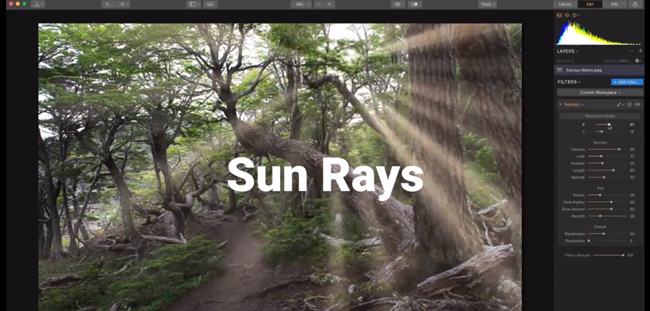
As mentioned above, the latest version of Luminar has a huge range of new and exciting updates such as:
• Organizing photos automatically with smart shortcuts
• A brand new Accent AI filter
• Folders that remain in synchronization with images on the hard disk drive
• Ability to synchronize adjustments between multiple photographs
• Multiple viewing options (filmstrip, gallery, and single image view), and
• A library for viewing, organizing, and editing multiple photographs
Luminar Neo has the ability to do everything that the offering from Adobe does and also has certain improvements over it.
We were surprised to note that the program's library scanned the hard disk drive of our computers and updated itself to match what our HDD looks like.
We were a bit dismayed by the slow import feature, but this should not be a constraint for first-time photo editing software, considering the low price of Luminar Neo. The new version of Accent AI speeds up your workflow immensely.
Use of Artificial Intelligence
The single slider adjustment employs artificial intelligence to access an image and enhance it. This is a powerful feature if you want to develop your photographs quickly. This module handles everything from contrast, color, exposure, details, depth, and tone with remarkable accuracy.

The software is available both for the Windows and Mac operating systems.
Price
Luminar Neo offers 3 pricing plans:
• The Explore version costs $9.95/month.
• The Pro Edition costs $149/year and includes “Extensions Pack” and “Magic Light”, complete with all the Pro Extensions. HDR Merge is included in the Extensions Pack with all future upgrades.
• The Lifetime Edition costs a one-time payment of $179. The product becomes yours forever.
By the way, the company is offering a special discount on their home page.
HDR Merge
This is, without any doubt, one of the easiest photo editing programs we have come across as you will find out in this Luminar Neo vs HDR Merge review.
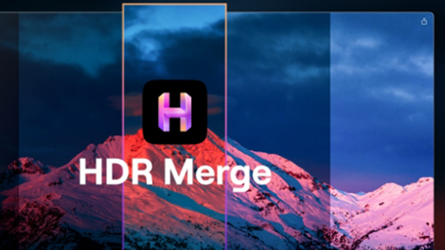
Luminar vs HDR Merge Comparison
This comparison explains which we prefer and the differences between the Luminar and HDR Merge Bundle.
Easy to Use
We prefer to use photo editing software that gives us the desired results without having to go through a steep learning curve.
Despite being sophisticated, HDR Merge is user-friendly and easy to use. This photo editing tool can now create a finalized tone-mapped file in a couple of steps, pushing it one step ahead of its competitors.
Recent versions now boast of a Quantum HDR Engine that has an updated tone mapping algorithm over its predecessor and superior bracket merging.
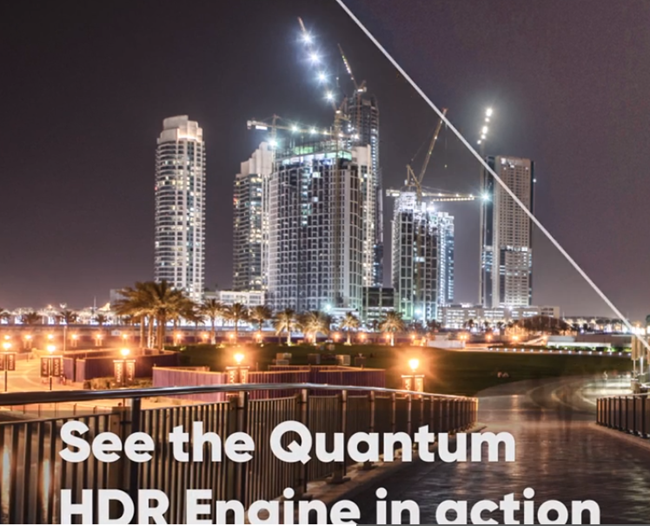
We were, pleasantly, surprised by the immediate and natural improvement in the dynamic range of the bracketed shots we opened in this program without making any adjustments. This means that we can have a quality base image to use as a reference point for advanced tone control.
Following this basic tone improvement, the software provided us with a wide range of editing possibilities, with the help of the intuitive slider-based interface of the program.
HDR Panel that is Easy to Understand
Those who have used Adobe Lr will feel at home with the HDR Merge Basic Panel, as this tool employs a very similar control layout. The friendly control layout also makes the learning process simple for beginners.
Easily Edit Photographs Even At Night
This is the tip of the iceberg as HDR Merge also has an impressive range of style customization tools, which provides precise control over both detail and color.
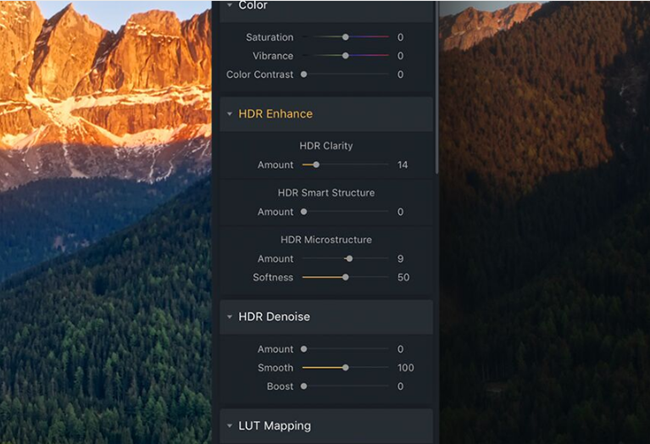
Those who like editing photographs at night will love the “dark color scheme” of the software that makes slider and menu nomenclature easy to read and also helps to ensure an accurate assessment of brightness and color.
This puts HDR Merge ahead in this Luminar Neo vs HDR Merge review and will help first-time purchasers decide whether they should opt for Luminar or HDR Merge.
Features that Help You Compare Luminar and HDR Merge
The vendor has added a number of useful updates in the recent versions despite the fact that the overall functionality of both is the same.
Be prepared to be surprised by the HDR Enhance Panel that offers a quick way of adding enhancements to micro-contrast and structure. You can easily extract fine image details without introducing over-processed and unnatural effects with minor tweaks to the positions of the slider in this section.
This area also takes advantage of the new Quantum Engine. This updated algorithm permits you to push sliders further for attaining stronger effects without image degradation artifacts like edge halos from creating an impact on the integrity of an image.
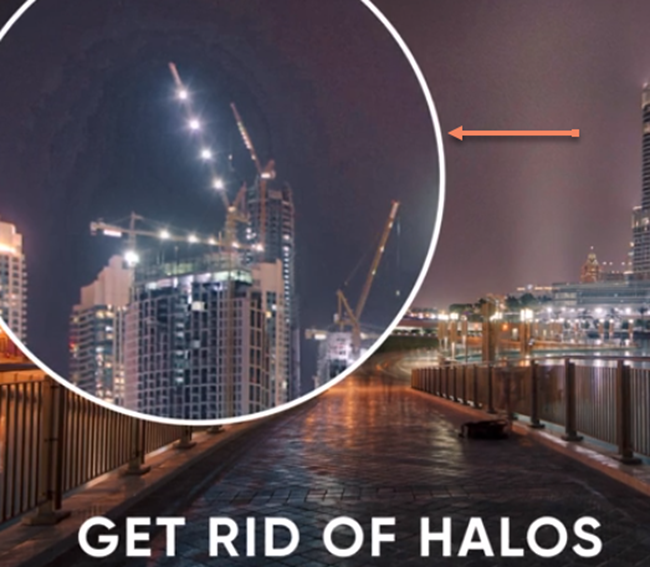
This version also includes an inbuilt noise reduction capability, allowing you to address luminance or color patterning without the need to import the image to different software.
We are sure that by now, you have understood more about Luminar compared to HDR Merge, and the fact that you can have HDR Merge included as part of Luminar Neo.
The “denoise” function of HDR Merge is a useful feature that makes this software a one-stop HDR option, even though this function is not as effective or powerful as a dedicated noise reduction plugin. This feature permits you to minimize noise real-time while you change the tone mapping.
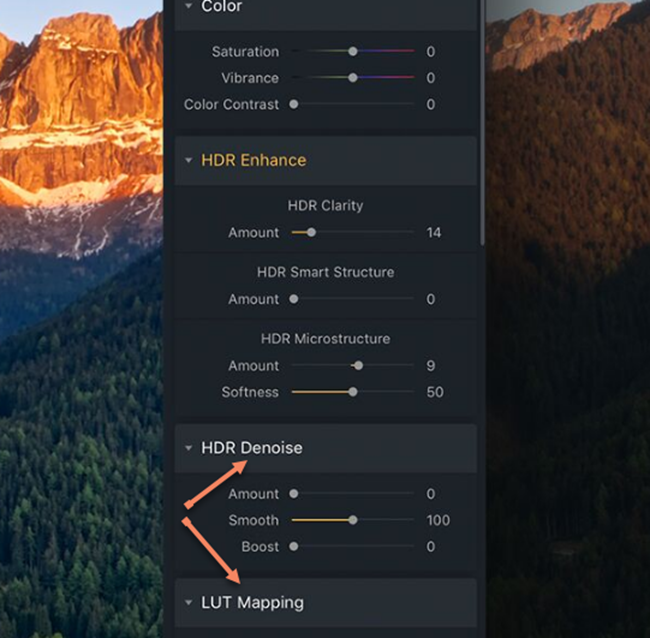
Easily Go Back to Any Point of the Editing Process
We loved the history function that keeps a track of all of the changes we make to an image. This allows us to revert to any point during the editing process. Thanks to this, we hardly wasted any time revisiting any image stage without interrupting the creative process.
Luminar Neo and HDR Merge Further Compared
HDR Merge allowed us to keep colors within natural limits following tone mapping without having to undertake extensive editing in Adobe.
Another advantage of HDR Merge is its capability to apply alterations to Adjustment Layers from within the software itself. We were amazed by the degree of detail we could extract from just one RAW file.
We could get images that effectively duplicate the human vision's dynamic range through orthodox tone mapping of bracketed exposures. The new version boasts of a “color lookup table,” which, in combination with the amazing gradient tool and tone curve, provides dynamic color control, which was, in the past, only possible with dedicated RAW editors.
Price
HDR Merge has three pricing plans:
- HDR Merge one-time purchase – $49.
- Pro – $99/year (Complete with all existing and future Extensions).
- HDR Merge with Pro Level Extensions for Luminar Neo – $179.
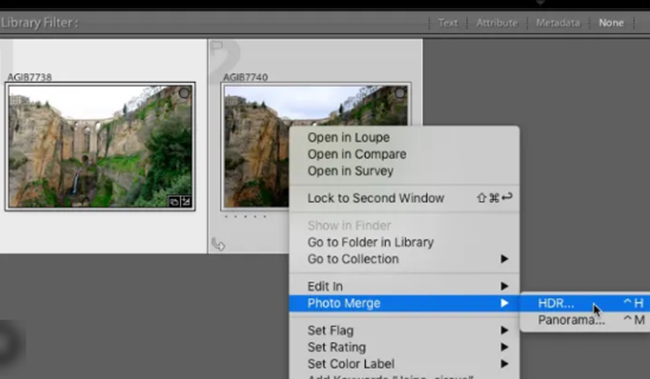
Hopefully, this review of Luminar Neo vs HDR Merge will allow you to decide on which to go for between Skylum Luminar and HDR Merge and purchase the software that is suitable for your needs. Or better still, getting both as a bundle.

